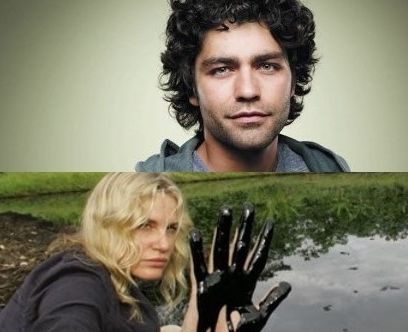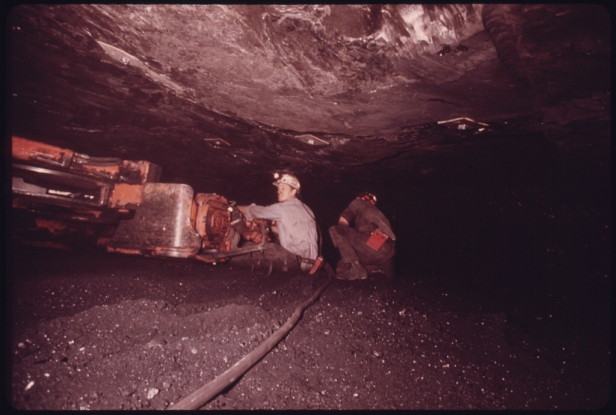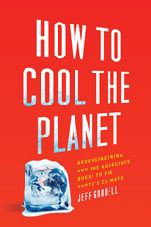The other day, an MSNBC producer asked me, “What is the connection between this coal-mine disaster in West Virginia and geoengineering the planet?”
The question is not as strange as it sounds.
A few years ago, I wrote a book called Big Coal: The Dirty Secret Behind America’s Energy Future. Among other things, I spent a lot of time underground with coal miners and learned a lot about the dangers and problems of mining coal. I also learned a lot about Don “I’m a poor guy with a lot of money” Blankenship, the CEO of Massey Energy, which owns the mine where at least 25 men died as the result of a methane explosion last Monday. Because of that experience, I’m often asked to comment when there is breaking news about a mine disaster.
My new book, which is about geoengineering the earth’s climate, would seem to be entirely unrelated. But in fact — as I tried to explain to the MSNBC producer — it really isn’t.
For one thing, writing Big Coal convinced me of the need to take geoengineering seriously. After four years of researching and writing about the coal industry, it became very clear to me that the world is not going to stop burning coal any time soon. Nor is carbon capture and sequestration — the only technology on the horizon that might allow us to burn coal without melting the planet — ever likely to amount to much (too complicated, too expensive, the industry itself too moribund to ever change).
Upshot? Climate calamities ahead. Geoengineering might indeed be a foolish idea, but we live in foolish times.
But there are other connections between the West Virginia mine disaster and geoengineering.
Both are creations of America’s failed energy policies. The fact that the U.S. — the richest, most technologically sophisticated nation on the planet — is still burning more than a billion tons of black rocks every year to generate electricity is a political outrage. Yes, burning coal generates cheap power. But as everyone reading this knows, coal is only “cheap” because the industry uses its muscle to make sure that the true costs — the broken bodies of coal miners, the blasted mountains of Appalachia, the asthmatic children who live near coal plants, the superheated planet — are not factored into the price. If they were, we’d be burning a lot less coal, and we might be a lot further along in the development of cleaner, more sustainable energy sources.
And of course if we were burning less coal, we probably wouldn’t be talking about geoengineering at all. In this sense, geoengineering is a technological fix for a broken political system.
Another connection between the West Virginia coal disaster and geoengineering: Who eats the risk?
One of the big fears about geoengineering is that it will allow rich, technologically sophisticated nations to essentially call the shots when it comes to deciding what kind of climate we live in. It’s not a big leap to assume that these nations will want to optimize the climate for their benefit.
And if we starting monkeying around with the climate and something goes wrong — oops, sorry, didn’t mean to turn off your monsoons! — who do you think is going to suffer most? The people in the Sahel or the people in Sausalito?
It’s a similar dynamic in the coal industry. Don Blankenship doesn’t have to worry about getting blown up in a methane explosion. He flies around in a black helicopter, lives on the top a West Virginia mountain — one of the few in the region that still has a top — and cashed in stock worth nearly $4 million this year alone. If he can push his workers to work longer hours, cut corners, and run more coal, well, hey, that’s how capitalism works! This is a commodity business, after all. Coal is coal, whether there’s blood on it or not.
All the risks, of course, are borne by the workers in the mine. The men and women who labor in the noisy darkness for eight, ten, twelve hours a day, most of whom are just trying to feed their families. They know they are replaceable, that if they open their mouths about the dangerous conditions they see or the fears they have about a mine starting to go bad, they will find themselves stocking yo-yos at Wal-Mart for seven bucks an hour.
So they shut their mouths about the outrages they see and keep working. They eat the risk. And the great tragedy is, sometimes they end up dead.
—–
Editor’s note: This is the second in a series of posts from Jeff Goodell, author of How to Cool the Planet: Geoengineering and the Audacious Quest to Fix Earth’s Climate. Here’s his first post. And here’s an interview with Goodell about his book, and an earlier interview about Big Coal.




